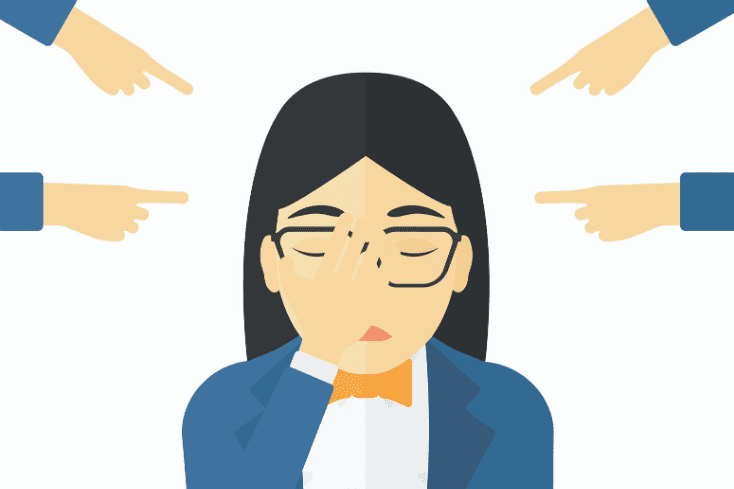July 13, 2020
By Sam Louie MA, LMHC, S-PSB
 Suicide is the leading cause of death among Asian Americans aged 20-24 years, responsible for about 33% of deaths in that age bracket. That percentage falls to 21% for non-Hispanic whites, 15% for people of Hispanic origin, and just under 10% for non-Hispanic Blacks.
Suicide is the leading cause of death among Asian Americans aged 20-24 years, responsible for about 33% of deaths in that age bracket. That percentage falls to 21% for non-Hispanic whites, 15% for people of Hispanic origin, and just under 10% for non-Hispanic Blacks.
You may ask how culture can play such a pivotal role in this alarming rate. First off, you have to understand that Asian immigrants to the U.S. bring centuries-old viewpoints on education, mental health and cultural identity.
Then, you have to understand that Asian Americans have a three-headed monster to slay in order to obtain emotional health: erasing the stigma of asking for help, finding one's identity as a minority in the U.S. and facing the cultural norms that act as barriers.
Asians come from traditional collectivist societies that value interdependence over independence. Consequently, the need to preserve and perpetuate collective honor (family, ethnicity, society, etc.) is held in the highest esteem. Failing to do so leads to what I've coined as "Asian shame," where one feels they have so disgraced their kin they must hide oneself (physically and/or emotionally) or rid oneself from society and atone for their actions by suicide.
In the context of young Asian Americans, this can present itself as getting grades not acceptable to their parents, being in a romantic relationship with someone the family is against, or more globally speaking, going against parental wishes of any form. To do so will often strike terror into the heart of a young Asian, as parents sometimes threaten to abandon, ostracize or disown their children. Even if this is not the reality, if the fear or perception is high enough, it might lead to depression or suicidality.
Asian Americans are minorities in the U.S. and face racism, teasing and bullying that is either condoned by mainstream society or yet to be emphatically condemned. Consequently, Asian Americans suffer tremendously in their desire to be known as Americans but instead are often viewed as "perpetual foreigners."
Additionally, the duality of living in the U.S. with parents or relatives who are bound to collectivist viewpoints, while living in a Westernized, individualistic society where one is taught to think for oneself and speak up, contradicts the notions espoused by Confucius and other tenets of collectivist cultures. Young Asian Americans may therefore feel an internal conflict regarding which worldview they most identify with, or if they identify with both equally, how to manage that conflict in a world that seems to want them to choose.
Mental health is viewed as a weakness, and talking openly about anything emotional (i.e. sadness, disappointments, various life events, etc.) is rarely encouraged. Stoicism rules while physical touch and verbal affirmation can be seen as coddling.
The alarming rate of suicide among young Asian Americans should be a warning that awareness is needed on numerous fronts (family, schools, health care providers and churches) to stem this epidemic. One attempt is the recent release of "Looking for Luke," a film produced to address the issue of suicide as it draws on the life of Luke Tang, a Harvard college student who died by suicide in 2015 among mounting academic and cultural pressure.
As an Asian American therapist specializing in this area, in addition to this film, I believe in creative workshops and other non-threatening means where healers can provide culturally relevant and sensitive support. The stigma of traditional counseling cancreate barriers to helping people start their journey towards growth and healing, so finding alternative ways to engage populations facing multicultural issues is critical.
Educational institutions, churches and other organizations must also be willing to invest time and resources so Asian Americans can get the help they deserve.
Sam Louie is a therapist in Seattle who specializes in cultural issues, trauma, and addictions. He recently created a self-paced e-course for licensed counselors, social workers and MFTs addressing hate crimes and racism. Visit his speaking website.
We’re always accepting submissions to the NAMI Blog! We feature the latest research, stories of recovery, ways to end stigma and strategies for living well with mental illness. Most importantly: We feature your voices.
LEARN MORENAMI HelpLine is available M-F, 10 a.m. – 10 p.m. ET. Call 800-950-6264,
text “NAMI” to 62640, or email. In a crisis, call or text 988 (24/7).